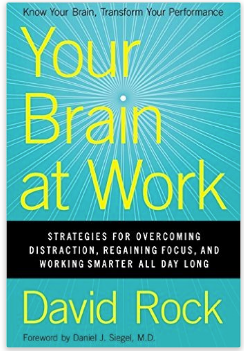
Episode Summary
In yesterday’s episode I shared that asking “How are you feeling?” is a much better question to ask than “Are you ok?”. I mentioned that talking about the emotion you are experiencing and describing what it is was actually healthy for you.
In this episode I share the brain research I discovered that supports that claim.
Episode Show Notes
00:13 – The Background to this episode – why asking “Are you ok?” is the wrong question to ask.
01:39 – Basic Brain physiology relevant to the topics discussed in this episode:
- Amygdala – part of the limbic system that is fired up when we are in a highly charged emotional state.
- Pre-Frontal Cortex – Where we process decisions, solve problems and set goals.
03:19 – A great resource to help understand how your brain works is called “Your Brain At Work” by David Rock.
03:53 – When we are emotionally aroused, the Amygdala is fired up. It fires up more when triggered by danger than when stimulated by reward.
05:34 – When the Amygdala is fired up, there are implications for the resources available to the Pre-Frontal Cortex:
- We become more automatic in our responses to situations.
- Decision making is harder.
- We are more likely to respond negatively.
06:22 – We have three options for emotional regulation when we are in a highly aroused state:
- Express the emotion (unless we are 5 years old, this is usually not appropriate!)
- Suppress the emotion – research has shown this is not possible – the limbic system remains aroused even if we manage to hide how we are feeling.
- Cognitive change – train ourselves to think about something else.
07:40 – The secret to cognitive change is the dynamic of resource sharing between the Amygdala and the Pre-Frontal Cortex. When the Pre-Frontal Cortex is aroused, less resources are available to the Amygdala.
08:15 – Labelling is a cognitive approach that has proven to be effective by research carried out by Matthew Lieberman at UCLA.
09:31 – Many people wrongly assume that talking about emotions increases their intensity.
10:35 – Studies done by David Cresswell at UCLA also show mindfulness to be a big factor in the ability of people to regulate their emotional state through labelling.
Resources Discussed In This Episode
[1] – What Causes Depression – Harvard Medical Review
